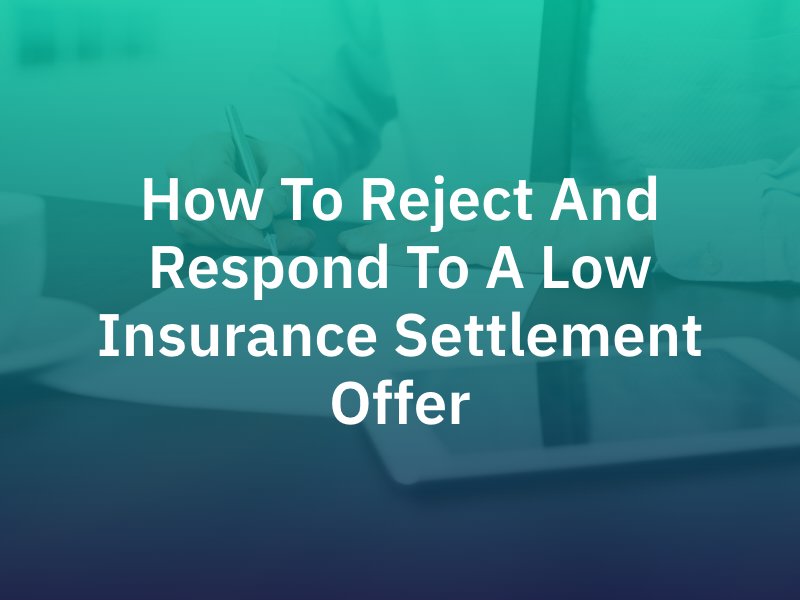How to Reject and Respond to a Low Insurance Settlement Offer
Posted on May 16, 2022 in Car Accident
If you or somebody you love has been injured or sustained property damage caused by the negligent actions of another individual or entity, you need to take the steps necessary to recover compensation for your losses. Unfortunately, insurance carriers are notorious for trying to get individuals to accept low settlements. Here, we want to discuss what you should do if an insurance carrier offers you a settlement far below what you think you are entitled to for your losses.

Be Wary of the First Settlement Offer
In the aftermath of a vehicle accident, or any type of injury that occurs where you expect a settlement, you need to be aware that the first settlement offer that comes from the insurance carrier is likely to be far below what you should actually receive.
Why would this be the case?
The reality is that insurance carriers are for-profit entities, which means they are looking for ways to save money. The main way that insurance carriers save money is by paying out as little as possible for legitimate claims.
We strongly encourage you to work with a skilled personal injury lawyer who has experience handling these situations. An attorney will be fully prepared to handle low settlement offers and respond accordingly.
The Response to the Insurance Carrier
After you receive the first offer from the insurance carrier, it is unlikely that the offer will be an adequate amount. You will need to reject this offer. Many individuals are afraid of rejecting settlement offers, particularly if they need the money and if they are worried that they will not be able to secure additional compensation. Again, the first settlement offer is likely well below what you should receive, and the insurance carrier knows this.
When you send back a response to the insurance carrier, it will likely need to be done through a formal demand letter. An attorney with experience handling these situations should be the one to draft this formal letter.
A demand letter will include a brief summary of the incident and the injuries, a list of the evidence gathered (and the evidence attached in supplemental documents), and a dollar amount that you will accept. The demand letter will also indicate a date by which the offer must be accepted or denied by the insurance carrier, along with a message letting the insurance carrier know that a civil personal injury lawsuit may be forthcoming if the offer is rejected.
Taking the Claim to Trial?
The insurance carrier will likely respond to the demand letter in one of three ways:
- They could accept the demand and pay the requested amount.
- They could send back a counteroffer with a lower amount.
- They could deny the claim altogether.
If you and your Portland personal injury attorney are satisfied with the counteroffer, which is the most likely response the insurance carrier will send, you could take it and let the claim be over with. If you are not satisfied with the counteroffer or if the insurance carrier denies the claim, you may need to file a civil personal injury lawsuit against the at-fault party and the insurance carrier and take the case to trial.
